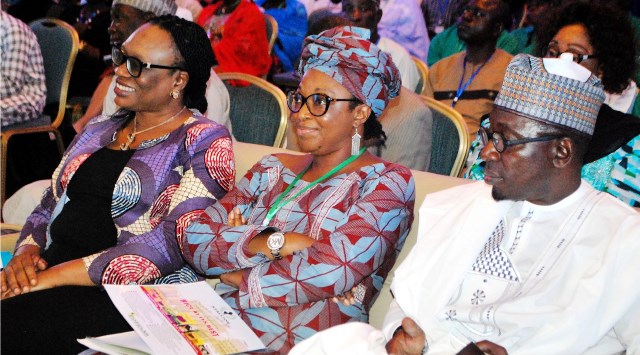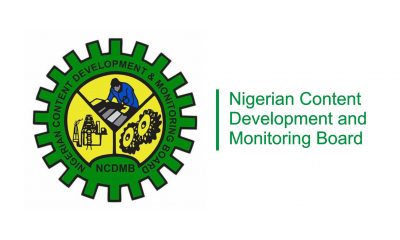Health
Breast-Feeding, Key To Attaining SDGs, Foundation Affirms
As the World marks the 2019 Breast-feeding Week, STAND Foundation, says breastfeeding is key to attainment of the Sustainable Development Goals (SDGs).
The foundation’s Executive Director, Ms Olusayo Adeleye, said this yesterday in Ibadan while fielding questions from newsmen.
Our correspondent reports that the 2019 theme for the World Breastfeeding Week, which is observed annually from Aug. 1 to 7, has the tagline “Empower Parents, Enable Breastfeeding”.
Adeleye said that breastfeeding, which lays the foundation for child’s survival and development, becomes a critical stage for achieving many of the SDGs.
“As a practical step towards protecting the survival and health of babies and women, breastfeeding can help achieve many of the SDGs including goals on poverty, hunger, health, education and gender equality.
“Goal Three, Target Two of the SDGs projects says that by 2030 there should be an end to preventable deaths of newborns and under-five deaths.
“Breastfeeding is potentially one of the top nutrition interventions for reducing under-five mortality and providing well-being for children and mothers, therefore making it one of the means of achieving this goal.
“It is also associated with reducing woman’s risk of diabetes, heart disease, ovarian and breast cancers; these benefits contribute to central goals of the 2030 SDGs,” she said.
She called on government at all levels to implement breastfeeding-friendly policies to increase breastfeeding rate in the country.
“Breastfeeding-friendly policies and environment are particularly important to provide the necessary support and encourage more mothers to breastfeed.
“These policies must cut across both public and private sectors and they must include paid parental leave for both mothers and fathers.
“This will help the parents nurture and bond with their children in early life, when it matters the most.
“Workplaces must have breastfeeding friendly policies to make it easy for mothers to continue breastfeeding upon return to work by giving them breastfeeding breaks as well as providing affordable childcare in form of clean, safe and hygienic breastfeeding centres within the workplace premises,” she said.
A professor of Paediatrics, Mrs Chinyere Ezeaka, said that exclusive breastfeeding rate of 23.33 per cent in the country is low compared to the global average of 40 per cent.
Ezeaka, who works at the Department of Paediatrics, Lagos University Teaching Hospital, said that breastfeeding uptake remained low despite increased awareness on its multiple benefits for newborn babies and mothers.
“Breastfeeding should be established between 30 minutes and one hour of delivery for early initiation to establish exclusive breastfeeding and ensures that the baby receives the colostrum, which is the first immunisation.
“Our breastfeeding rate is still low despite the increase from 17 per cent to 23 per cent, whereas some countries record as high as 80 per cent exclusive breastfeeding.
“We must all join hands and put things into perspective in order to increase our breastfeeding rate.
“Talking about breastfeeding during antenatal is very important for mothers to become interested and appreciate the benefits of exclusive breastfeeding,” she said. (NAN)
Health
‘How Micro RNA Research Won Nobel Prize’
Two United States scientists who unraveled the human micro RNA have won the Nobel Prize in Physiology or Medicine 2024.
Victor Ambros and Gary Ruvkun won the coveted prize for their work on microRNA as their discoveries help explain how complex life emerged on earth and how the human body is made up of a wide variety of different tissues.
MicroRNAs influence how genes – the instructions for life – are controlled inside organisms, including humans.
Every cell in the human body contains the same raw genetic information, locked in our DNA.
However, despite starting with the identical genetic information, the cells of the human body are wildly different in form and function.
The electrical impulses of nerve cells are distinct from the rhythmic beating of heart cells. The metabolic powerhouse that is a liver cell is distinct to a kidney cell, which filters urea out of the blood.
The light-sensing abilities of cells in the retina are different in skillset to white blood cells that produce antibodies to fight infection.
So much variety can arise from the same starting material because of gene expression.
The US scientists were the first to discover microRNAs and how they exerted control on how genes are expressed differently in different tissues.
The medicine and physiology prize winners are selected by the Nobel Assembly of Sweden’s Karolinska Institute.
They said: “Their groundbreaking discovery revealed a completely new principle of gene regulation that turned out to be essential for multicellular organisms, including humans.
“It is now known that the human genome codes for over 1,000 microRNAs.”
Health
WHO Begins Regulation On Antibiotic Waste
The World Health Organisation (WHO) has begun acting to curb effects of antibiotic pollution.
The new guidance on wastewater and solid waste management for antibiotic manufacturing sheds light on this important but neglected challenge ahead of the United Nations General Assembly (UNGA) High-Level Meeting on antimicrobial resistance (AMR) taking place on 26 September 2024.
The emergence and spread of AMR caused by antibiotic pollution could undermine the effectiveness of antibiotics globally, including the medicines produced at the manufacturing sites responsible for the pollution.
Despite high antibiotic pollution levels being widely documented, the issue is largely unregulated and quality assurance criteria typically do not address environmental emissions. In addition, once distributed, there is a lack of information provided to consumers on how to dispose of antibiotics when they are not used, for example, when they expire or when a course is finished but there is still antibiotic left over.
“Pharmaceutical waste from antibiotic manufacturing can facilitate the emergence of new drug-resistant bacteria, which can spread globally and threaten our health. Controlling pollution from antibiotic production contributes to keeping these life-saving medicines effective for everyone,” said Dr Yukiko Nakatani, WHO Assistant Director-General for AMR ad interim.
Globally, there is a lack of accessible information on the environmental damage caused by manufacturing of medicines.
“The guidance provides an independent and impartial scientific basis for regulators, procurers, inspectors, and industry themselves to include robust antibiotic pollution control in their standards,” said Dr Maria Neira, Director, Department of Environment, Climate Change and Health, WHO. “Critically, the strong focus on transparency will equip buyers, investors and the general public to make decisions that account for manufacturers’ efforts to control antibiotic pollution.”
Health
Kebbi Harmonises Doctors’ Salaries To Curb Brain Drain
In a concerted effort to curb brain drain, the Kebbi State Government has harmonised medical doctors’ salaries to be at par with their colleagues in the federal government’s tertiary health facilities.
Kebbi State Commissioner for Health, Musa Inusa-Isma’il, disclosed this at the handing over of ambulances to the state-owned health facilities at the Ministry of Health in Birnin Kebbi yesterday.
Inusa Isma’il, according to a statement by Ahmed Idris, the Chief Press Secretary to the governor, said the essence of the harmonisation was to retain the existing medical doctors and attract more to the services of the state.
According to him, the doctors across the state had already started enjoying the new salaries from August 2024.
He said the release of the vehicles was in fulfilment of Governor Nasir Idris’ promise to uplift health care services in the state.
“His Excellency said I should inform you, the beneficiaries of this gesture, that the vehicle should be strictly used for the intended purpose. It should not be used for anything else.
“If there is no referral case, each of the vehicles must be parked at the hospital by 6 pm. The governor said you should warn your drivers against reckless driving as well as violating the instructions.
“We should also do everything possible to reciprocate the gesture by working according to the terms and conditions attached,” he advised.
The benefiting health facilities included Sir Yahaya Memorial Hospital, Birnin Kebbi; State Teaching Hospital, Kalgo; General Hospital, Argungu; General Hospital, Yauri; General Hospital, Zuru; and General Hospital, Bunza.
In his speech, the permanent secretary of the ministry, Dr Shehu Koko, recalled that the ambulances were handed over to the ministry last Friday by the governor for the onward handover to the benefiting hospitals.
He observed that the ambulances would go a long way in improving the referral system in the state, adding that delays in reaching the secondary and tertiary facilities would be eliminated.
The permanent secretary attributed the high rate of maternal mortality in the country to delays in getting to the health facilities for proper medical care.
“We believe with the provision of these ambulances, part of the gaps we have in our referral system will be addressed, whereby patients who require secondary healthcare could be easily transported to secondary and tertiary health centres, where they can get such help,” he said.
In a goodwill message, Commissioner for Information and Culture Alhaji Yakubu Ahmed expressed gratitude to the governor for the support he has given to the ministry to excel.
While advising the beneficiaries to use the vehicles judiciously, the commissioner advised that services and maintenance of the vehicles must be prompt to derive the maximum benefits from the vehicles.
The commissioner also highlighted some achievements recorded by the government in the last year, including beautification of the state capital, completion of a multimillion-naira ultramodern state secretariat, road construction, construction and renovation of classrooms and upgrading of some health facilities, among others.
-

 Business3 days ago
Business3 days agoIFAD, VCDP Harp On Rice threshing Machines To Boost Harvest
-

 Featured2 days ago
Featured2 days agoWe’re Working To Improve Quality Of Life Of Rivers People -Fubara …As Taraba Gov Inaugurates 6.55km Okania-Ogbogoro-Mgbaraja Roads Project
-
Sports3 days ago
NBF Announces Olympics Preparation Date
-
Nation2 days ago
Community Organises Civic Reception For LG Boss
-
Rivers3 days ago
Expert Advocates IT Driven Security In Rivers
-
News3 days ago
Tinubu To Present 2025 Budget To NASS Dec 17
-
News3 days ago
Fubara Unveils Steps To Boost Agriculture In Etche …As Omehia Flags Off Egwi-Afara-Mba Road Project Says Road’ll Enhance Connectivity, Economic Activities
-

 Business2 days ago
Business2 days agoNCDMB Tasks Media Practitioners On Effective Reportage

